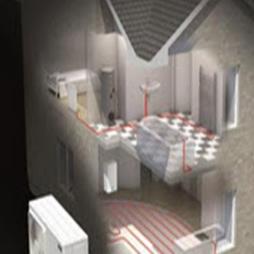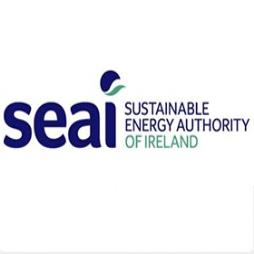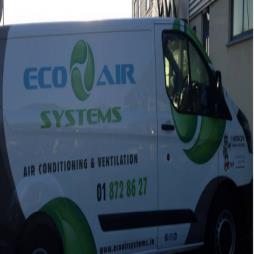More than 1,000 Home Energy Savings grants approved every week – Green Energy, Green Jobs
16-07-2014
More than a thousand applications for home energy savings grants are being approved every week and 98.5 percent of the recipients say they would recommend the scheme to others. That was just one of the positive findings of a survey published today by the Sustainable Energy Authority of Ireland (SEAI), the agency charged with administering the Government’s Home Energy Saving (HES) scheme. The survey also revealed that over 68,000 grants had been awarded since the scheme began in April 2009. The SEAI is receiving 500 contacts every day by phone, web or post from the public and contractors.
The survey findings were unveiled at a major conference in Dublin today which was organised by the Institute of International and European Affairs (IIEA) with the support of the SEAI, ESB, Bord Gáis, CRH and Dalkia.
It was the first time that all sectors with a stake in the Government’s National Retrofit Programme – which aims to deliver energy efficiency upgrades to one million residential, public and commercial buildings in Ireland – had the opportunity to gather to explore ways to maximise the potential for job creation and to protect the environment.
Opening the event, the Chairman of the Institute of International and European Affairs, Brendan Halligan, said that by virtue of its scale, the retrofit program will be the biggest civil engineering project ever undertaken in the history of the state. “The magnitude of this task is a direct consequence of the colossal failure on the part of Ireland to build to the highest standards,” said Mr Halligan.
“The retrofit program is one of the rare events which constitutes a win win all around. Upgrading the energy performance of our building stock will create a new building industry with significant enlargement potential, spawn a lengthy supply chain, generating more jobs, save home owners an average of 40% on their energy bills, improve the comfort of all buildings, reduce GHG emissions, and reduce oil and gas imports by over a billion euro and, thereby, provide a much needed stimulus to the economy.”
The keynote address was given by the Minister for Communications, Energy and Natural Resources, Eamon Ryan, who told the conference that over 5000 people were now in employment because of the Home Energy Savings scheme. “These are builders and electricians who have moved from constructing new houses to retrofitting the old. These are Building Energy Rating assessors and advisors who come to your home to advise you on the best measures to take. 5000 people now in jobs because of this Government scheme is something I am proud of and want to expand even further. I know there are construction workers who are ready, willing and able to carry out this work.”
SEAI’s Chief Executive, Professor Owen Lewis, said that another significant finding of the Authority’s survey was that 90% of participants had expressed satisfaction with the contractors who carried out their upgrade. “This is evidence that the competitive market is driving good quality, well-priced and well-delivered actions, and may help explain why the scheme’s popularity continues to grow”, said Professor Lewis.
“There are now over 2,700 registered contractors actively offering upgrades within the HES scheme. All of these are subject to the clear terms of scheme participation including governance, technical expertise and financial probity. Most importantly they are subject to the rigour of SEAI’s quality assurance scheme.”
Professor Lewis pointed out that a key issue raised in the survey responses was that of financing home energy upgrades. Most participants fund their share of the upgrade costs out of their own savings, rather than through loans or mortgage top-ups. “We need to reach sections of our population who are not currently participating and that means finding ways to finance their share of the costs,” he said.
“If people could raise funds more confidently through more accessible loan offerings, would we then see a rise in participation and a greater uptake of stronger measures such as external wall insulation?” he asked. “Driving the market to provide innovative financing solutions is an essential step to achieving these objectives of broadening the appeal of the programme and encouraging more significant and deeper investment.”
The event was also an important opportunity for the energy and construction industries, as well as energy utility companies, to explore the potential for expansion.
On behalf of the ESB – one of the event sponsors – its Product and Services Manager, Brian Dowd, told the conference that the HALO Free Energy Efficiency Survey had provided reliable and trusted advice to over 20,000 households on how they could reduce energy costs by improving the energy efficiency of their homes. “The ESB’s new HALO Installation Services goes further and will not only offer advice but can carry out a wide range of improvement measures for householders nationwide at a competitive price,” he added
Board Gais Energy- another sponsor of the event – was represented by its Head of Customer Operations, Tracy Kennedy, who outlined the company’s ‘Pay as You Save’ approach to retrofit.
The Managing Director of Dalkia Ireland (Veolia Environment’s Energy Division), Pat Gilroy, said that Retrofit could play a significant part in enabling Ireland position itself as an international leader in energy efficiency. Mr Gilroy, who is also Secretary of the Energy Institute and a member of the Expert Group in Future Skills Needs within the Irish Green Economy, said his company was proud to be one of the sponsors of the IIEA event.
“The value of holding such a conference is that for the first time all the stakeholders have been able to discuss in an open forum the implications of a programme like the National Energy Efficiency Retrofit Programme announced by Minister Lenihan last year. The implications and potential are far-reaching and will perhaps require us to re-look at how we approach energy efficiency in Ireland, from business models and finance packages to skills development,” said Mr Gilroy.
Jim Mintern, Country Manager of CRH, said the building materials group was also pleased to be a sponsor of the IIEA conference. “It highlights the many benefits to the economy of appropriately insulating existing buildings, including job creation, carbon reduction and energy saving”, he said.
“Insulated concrete products contribute significant thermal mass and give rise to optimal energy efficiency, when appropriately designed into buildings. CRH companies, Roadstone Wood and Aerobord continue to lead the way in the supply of energy and resource efficient retrofit solutions to the Irish market,” added Mr Mintern.





